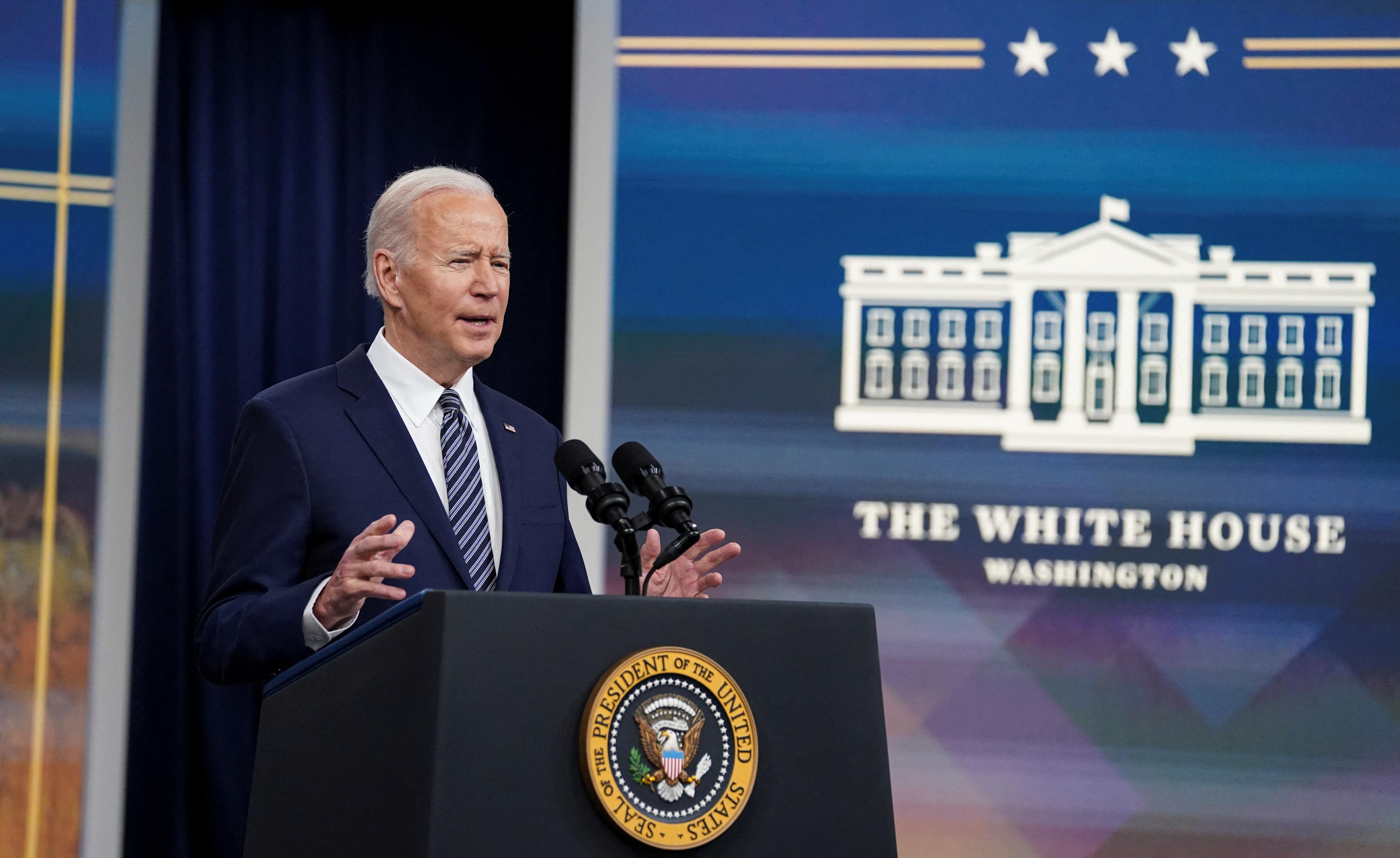What We're Watching: Biden moves on oil, US-Russia info wars, Costa Rica's vote
Major oil drama
President Joe Biden on Thursday ordered the US Strategic Petroleum Reserve to release 1 million oil barrels per day for the next six months in order to bring down soaring gasoline prices over the war in Ukraine. Technically, more American oil on the global market would help lower prices, but Biden's move was met by a collective shrug by the OPEC+ group of oil-exporting countries, which announced they can’t do much to stop rising prices and signed off on a modest increase in production. Vladimir Putin, meanwhile, announced that Moscow will indeed demand payment in rubles for Russian oil from now on. Those who don’t comply could face being cut off. France and Germany said no way, but there's a loophole: oil buyers can still deal with Gazprombank, a Russian bank that hasn't been sanctioned yet (and is conveniently run by the state-owned energy giant Gazprom). What does this all mean? Oil prices will keep rising, but they won’t skyrocket just yet.
Russia, the West, and information warfare
In recent days, the Biden administration and the Kremlin have been locked in a war of words. First, the White House said that US intelligence showed that President Vladimir Putin felt misled by his military leaders, who have avoided telling the Russian leader details about the bungled invasion. (British intelligence agencies then backed up this assessment.) The Kremlin hit back on Thursday, saying that the West has a “complete misunderstanding” of the goings on in Moscow and warning, ominously, that such claims could have “bad consequences.” It is unclear what intelligence the US and UK have or whether the Pentagon’s claims are true. But recent events seem to indicate the White House’s willingness to leak declassified material to rattle the Kremlin or call Putin’s bluff. Indeed, in early February, the White House preemptively released details of the Kremlin’s plan to invade Ukraine to try to throw Putin off his game.
Costa Rica goes to the polls
The Central American nation of 5 million will pick a president on Sunday in a runoff vote between current Finance Minister Rodrigo Chaves, who has positioned himself as a combative populist upstart, and former president Jose Maria Figueres, a centrist who was in power in the 1990s. In the latest polling, Chaves leads with about 41% of support, against Figueres’ 38%. Chaves has taken aim at the corruption of the political class, and says he would rule using referendums to skirt institutional red tape. But he also points to his decades of service at the World Bank to argue that he’s the right guy to help revitalize Costa Rica’s economy after a pandemic-induced recession. Figueres, meanwhile, styles himself as the safer pair of hands — after all, he already knows the job. With party affiliations generally very fluid in Costa Rica, the runoff will largely come down to whether voters in this historically moderate, stable country want familiarity or to shake things up a bit.
